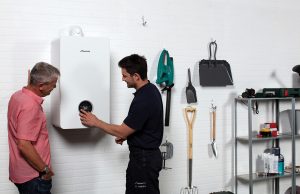
When planning a home improvement, garden or renovation project, it’s important to decide the best solution to dispose of the waste that your project creates.
If you choose skip hire follow these five top tips to ensure that you get the most out of your hire, minimise costs and avoid damage or environmental/health risks.
1 Plan the location of your skip
Access – there are a number of factors to consider when ordering a skip and considering the access. Firstly, there needs to be ample room for the company to unload the skip. You will also need to consider the roads leading to your property to ensure that the skip hire company can access the area in which you would like your skip placed. The delivery company will require a minimum of a 10 metre turning circle.#
Ease of use – to avoid frustration and unnecessary work, ensure that there is enough space around your skip for you to maneuver your refuse.
Solid base – if you are unsure of your base, ensure that you lay wooden blocks or planks on the area that you would like your skip placed to provide a solid base and prevent damage to the area.
Damage to property – ensure that there is enough space and a solid base to prevent damage to property. If there are concerns such as manhole covers in the area in which you wish to place your skip, you must let the company know on booking.
Secure – if your skip is placed on a road, as well as a permit you are legally required to place traffic cones around the skip to warn any traffic passing. It is advised that you cover your skip with tarpaulin, weighed down with rubble/bricks to ensure that it is secure. You can order a closed top skip if you would like extra security for your refuse.
Skip hire permit – you must always remember to get a skip hire permit if you are planning to place your skip on a road or anywhere that is not on your property. This must be purchased prior to your skip delivery. You can apply for this through your local council or you can ask your local skip hire company for advice.
2 Think about the size you need.
Skips come in a variety of sizes to meet your project needs.
The smallest skip is a 4 yard skip, this can hold approximately 25-35 bin bags. They are perfect for smaller projects such as a small kitchen or bathroom renovation. If you have limited space, these are ideal for access.
6 yard skips hold approxiately 40-55 bin bags and are great for medium sized kitchen or bathroom renovations. These are less commonly ordered as smaller projects can usually be taken are of by a 4 yard skip, if these are not big enough then an 8 yard skip is often better value for money.
8 yard skips hold approximately 60-75 bin bags and are often used for residential or shop refurbishments. They are also known as builders skips, big enough for medium sized renovations but small enough to fit on most residential streets, these are a popular choice.
12 yard skips hold approximately 90-110 bin bags and can be used for house clearance. These are large skips and consideration must be made in terms of access as they often do not fit on residential driveways, if placed on a road then a permit will be required.
3 What waste can you put in a skip
Skips are great for general waste produced from garden or house renovations, most skip companies will sort through and recycle all materials possible. This should be detailed on their websites. Examples of items that are great for skips are:
Cardboard
Soft furnishings
Metal
Plastic
Wood
Tiles and ceramics
Rubble and bricks
It is important to remember that there are also items that cannot be disposed of in a skip, this includes:
Tyres – these are too cumbersome for skip hire companies to remove.
Batteries – large batteries are full of harmful chemicals, they must be taken to a recycling centre.
Electrical equipment – items such as fridges, freezers and microwaves must be taken to a recycling centre.
Fuel, solvents and paints – Skip hire companies do not have a license to handle this type of waste.
Asbestos – only licensed asbestos removal contractors can remove this safely due to the health risks associated with this material.
Gas cylinders – there are companies that you can take these to who will refill or reuse them.
Plasterboard – this material gives off colourless but harmful gases. There are recycling plants that can dispose of this waste.
Fluorescent bulbs – these contain mercury which is harmful and cannot be put in a skip. Your local council will be able to advise on the best place to dispose of these.
Medical waste – some medical waste can pose a risk to others, it can also be unpleasant to deal with. Skip hire companies will not dispose of this waste but it can often be disposed of alongside general waste in council bins
4 Load smart and maximise space.
Overfilling a skip is a problem and will potentially bring additional charges or the requirement to purchase an additional skip. Filling a skip can feel like you’re playing tetris, adjusting odd shaped items to make the most of the space.
It is best to place flatter items at the bottom of a skip, such as wood or cardboard. You should also place heavy items such as bricks near to the bottom of a skip. Try to keep items as compact as possible to reduce gaps.
If you have sheets of glass to dispose of, try to lean them against the side of your skip to keep them in one piece.
Break down bulky items as much as possible, for example take the legs off a table or separate a sofa into smaller pieces. Once these have been added, you can fill any gaps with smaller or loose debris to make the most of the space.
5 Find a good company
When hiring a skip it is important to do your research and find a good company.
Make sure that the company you choose has a valid license. This will ensure that your waste is not dumped into a landfill site and that as much of it as possible is recycled. A licensed company will aim to reduce the negative impact of waste on the environment. Find a licenced skip hire company.
It is important to consider and compare the sizes and prices of skips, this can be done through a price comparison company. If you call the company you should expect good customer service and advice on the best skip to suit your needs.
Summary
If Hiring a skip is the way you decide to dispose of your waste you can be assured that it will be disposed of in the most ecological way. The skip hire company will need to pay around £90 per ton in landfill tax of waste when using a landfill site and therefore they aim to reduce the amount of waste as much as possible by recycling as much as they can. Skip hire companies will actively sort through your waste to separate it into different materials for reuse within other industries such as gardening, construction and electricity generation.
Skip hire takes the stress out of waste disposal and prevents numerous trips to your local waste management plant. It is an affordable and environmentally friendly option.













